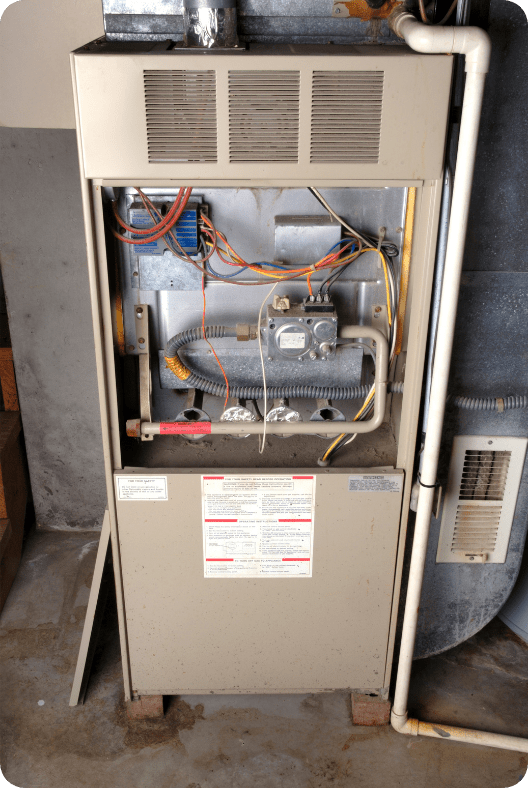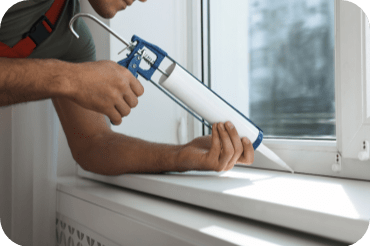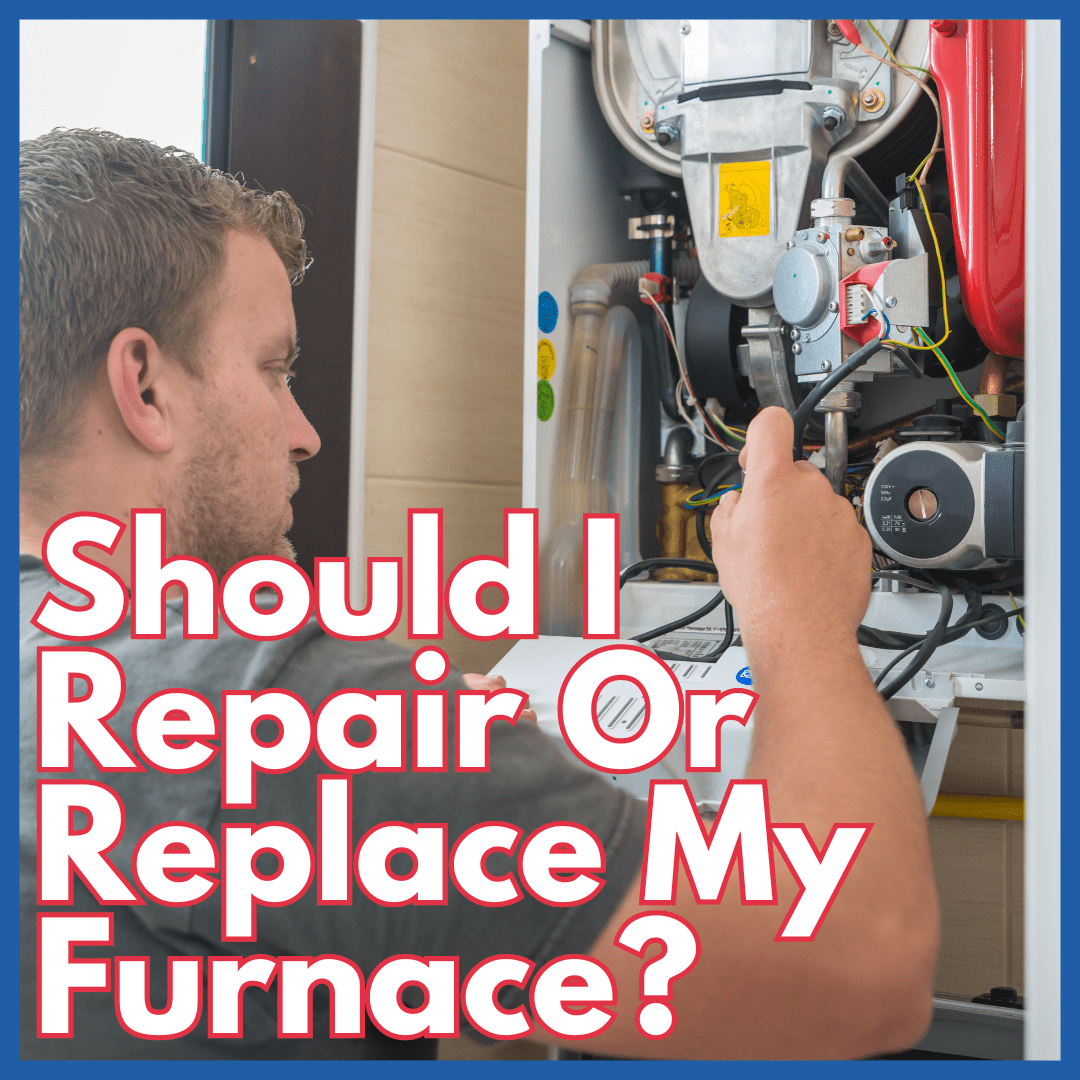 It’s never fun when your heating system breaks down in the winter. It leaves your home cold, and you not knowing what it’s going to cost to get the heat back on. This is a time when homeowners are faced with a decision: Should I repair or replace my heating system?
It’s never fun when your heating system breaks down in the winter. It leaves your home cold, and you not knowing what it’s going to cost to get the heat back on. This is a time when homeowners are faced with a decision: Should I repair or replace my heating system?
Factors such as cost of the repair, the age of the system, and frequency of repairs needed play crucial roles in this decision-making process. I’ve been working with furnaces, and all sorts of heating systems for years now, and have repaired or replaced a whole bunch.
This article will go over the factors you should consider when it comes to fixing, or replacing your heating system. If you have any questions, or need some help with your furnace in the Chilhowie, VA area, give us a call at (276) 690-9222, or contact us online to make sure you get the heat on ASAP!
How Long Does A Heating System Last?
The lifespan of a heating system largely depends on the type of system you have, the quality of your system, and the maintenance history. On average, a well-maintained furnace should last between 15 to 20 years. We’ve seen some systems that last over 20 years with proper care and routine professional maintenance.
The problems usually arise when you don’t schedule maintenance, and let your furnace go years without service. This is when you see the system start breaking down years before it should.
Signs You Should Replace Your Heating System
Obviously, if your heating system stops working, you will have to call in a professional to have it either fixed or repaired. Here are some signs that indicate it may be time for a replacement:
- Age of the System: If your furnace is over 15 years old, it might be time to consider replacement, especially if it requires frequent repairs.
- Increasing Energy Bills: An old or malfunctioning system often becomes less efficient, leading to higher energy bills.
- Frequent Repairs: If your system has had to be repaired numerous times over the last few years, it’s a clear sign that your furnace might be nearing the end of its lifespan.
- Inconsistent Heating: If you notice uneven heating or if some rooms are colder than others, your system may no longer be effective. This could be a problem with your ductwork, or your internal heating components. A professional can help you figure out what the exact problem is!
- Unusual Noises or Odors: Sounds and smells coming from your furnace can be normal, but there are also some that can indicate a problem. Kicking on and off, and maybe a small burning smell of soot when you first turn the system on are normal. But, if you start to hear loud bangs and clangs, or maybe smell something a bit stronger, it could be a sign there is a serious problem.
Reasons You Should Repair Your Heating System
Not every furnace or heating problem requires a replacement. In some cases, repairing your heating system might be a better move. Here are some situations where you should repair your heating system.
- Minor Cheaper Repair: Minor repairs can be more cost-effective than replacing the entire system.
- System’s Age: If your system is relatively new (less than 10 years old), repairs can extend its lifespan significantly.
- Maintaining Warranty: Some repairs might be covered under warranty, making it a financially viable option. Be sure to let your HVAC technician know the system is still under warranty and see what can be done without having to shell out a bunch of money.
- Minor Issues: Simple issues like replacing filters or fixing a thermostat are usually easy and inexpensive to address.
Your HVAC specialist should be able to look at your heating system, and give you some options. They should be able to give you the price of a repair vs the cost of installing a new heating system.
We generally recommend that if the repair is expensive ($1000+), or if your system is older, consider a replacement. The truth is, you probably need to replace your furnace pretty soon if you are having major problems, and a repair is just going to push the replacement a little further down the road.
If you install a new heating system, it’s likely more energy efficient than your current failing system, and you’ll notice the difference in your heating bills. Not only is your home going to be more comfortable, but over the lifespan of your new HVAC system, you are going to see lower energy bills that help offset the cost of your new system.
How To Lengthen The Lifespan Of Your Furnace
 There are some easy steps you can take to keep your heating system in good shape, and lengthen the lifespan of your system. Here are some tips:
There are some easy steps you can take to keep your heating system in good shape, and lengthen the lifespan of your system. Here are some tips:
- Regular Maintenance: You should have your system looked at once a year by a professional. Regular maintenance will keep your system running efficiently, and prevent problems before they cause major issues.
- Change Filters Regularly: Dirty filters can strain your furnace and reduce its efficiency. You should change them once every few months to keep the air clean and the system running smoothly.
- Keep Vents Unblocked: Ensure that all vents are free from obstructions to allow free air flow. Couches, shelves, and other furniture should be moved away from the vents.
- Thermostat Settings: Avoid setting extreme temperatures. Consistent, moderate settings can reduce the strain on your furnace. We recommend you set it and forget it!
- Insulate Your Home: Proper insulation can reduce the workload on your heating system, thereby extending its life. This may be a little tougher than a DIY situation. Have a professional assess your insulation, and see if there are spaces in the home that are leaking air, like windows, doors, attics, and edges of the home.
The decision to repair or replace your heating system depends on various factors including age, efficiency, repair history, and the cost involved. Take account of all these factors, and get some professional advice. Remember, regular service is the best way to make sure your heating system lasts as long as it should, with the least amount of problems or energy waste!



